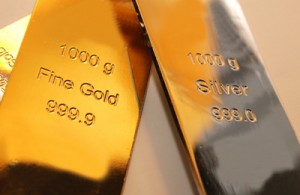9th February 2012
By Madison Ruppert
Contributing Writer for Wake Up World
Amidst concerns that the Federal Reserve System and the United States dollar could collapse at any moment, legislators across at least 13 states have begun to seek out alternative currencies.
Representatives in states including Georgia, Iowa, Minnesota, Tennessee and South Carolina have begun their quest to gain approval from their state government to issue their own alternative currency or even just explore it as a possible option.
This is quite noteworthy because only three years ago, a measly three states were exploring similar avenues.
[pro_ad_display_adzone id=”110028″]
Glen Bradley, a Republican Representative in North Carolina introduced a currency bill last year, citing concerns of possible hyperinflation or depression.
“In the event of hyperinflation, depression, or other economic calamity related to the breakdown of the Federal Reserve System … the State’s governmental finances and private economy will be thrown into chaos,” Bradley said.
Under the United States Constitution, states are not allowed to print their own paper money or issue their own currency, however it does allow states to make “gold and silver Coin a Tender in Payment of Debts,” which means that states are able to create a competing, alternative currency market based on precious metals instead of the fiat currency we call the dollar.
Individual communities, however, are not prevented from creating their own currency so long as it cannot be confused with U.S. dollars themselves.
Indeed, some communities have already pioneered local currencies like BerkShares which are used in the Berkshire region of Massachusetts.
BerkShares are issued by a non-profit organization, BerkShares, Inc., and then accepted by participating local banks, businesses and non-profit organizations. Currently there is an exchange rate of ninety-five cents per BerkShare with a large number of local businesses accepting the alternative currency.
However, since the BerkShare is a paper-based, fiat currency it would not be feasible at a state level, leading to the moves towards precious metals-based currency which would actually have an intrinsic value and would not be prohibited by the Constitution.
Edwin Vieira, an attorney who specializes in Constitutional law and a supporter of alternative currencies told CNN that since gold only continues to grow in value while the U.S. dollar steadily loses value, the notion of precious metals-based alternative currencies has become increasingly appealing to legislators at the state level.
Just last March Utah’s Governor Gary Herbert signed into law a bill which recognized U.S. Mint-issued gold and silver coins as acceptable forms of payment.
This law treats the coins the same as U.S. dollars in terms of tax purposes, which in effect eliminates capital gains taxes.
In Utah the law says that coins are to be exchanged at market value, which is based on the weight of the precious metal in the coin and the fineness of the coin and the metal. This is due to the fact that the face value of the coins is drastically different from the actual market value, like the one-ounce $50 American Gold Eagle coin which is actually worth upwards of $1,700.
Many of the proposed bills would allow residents of the states in which they pass to freely exchange the coins for both goods and services, essentially allowing residents to replace paper money entirely.
About the Author
Madison Ruppert is the Editor and Owner-Operator of the alternative news and analysis database End The Lie and has no affiliation with any NGO, political party, economic school, or other organization/cause. He is available for podcast and radio interviews. If you have questions, comments, or corrections feel free to contact him at [email protected]
[pro_ad_display_adzone id=”110027″]







